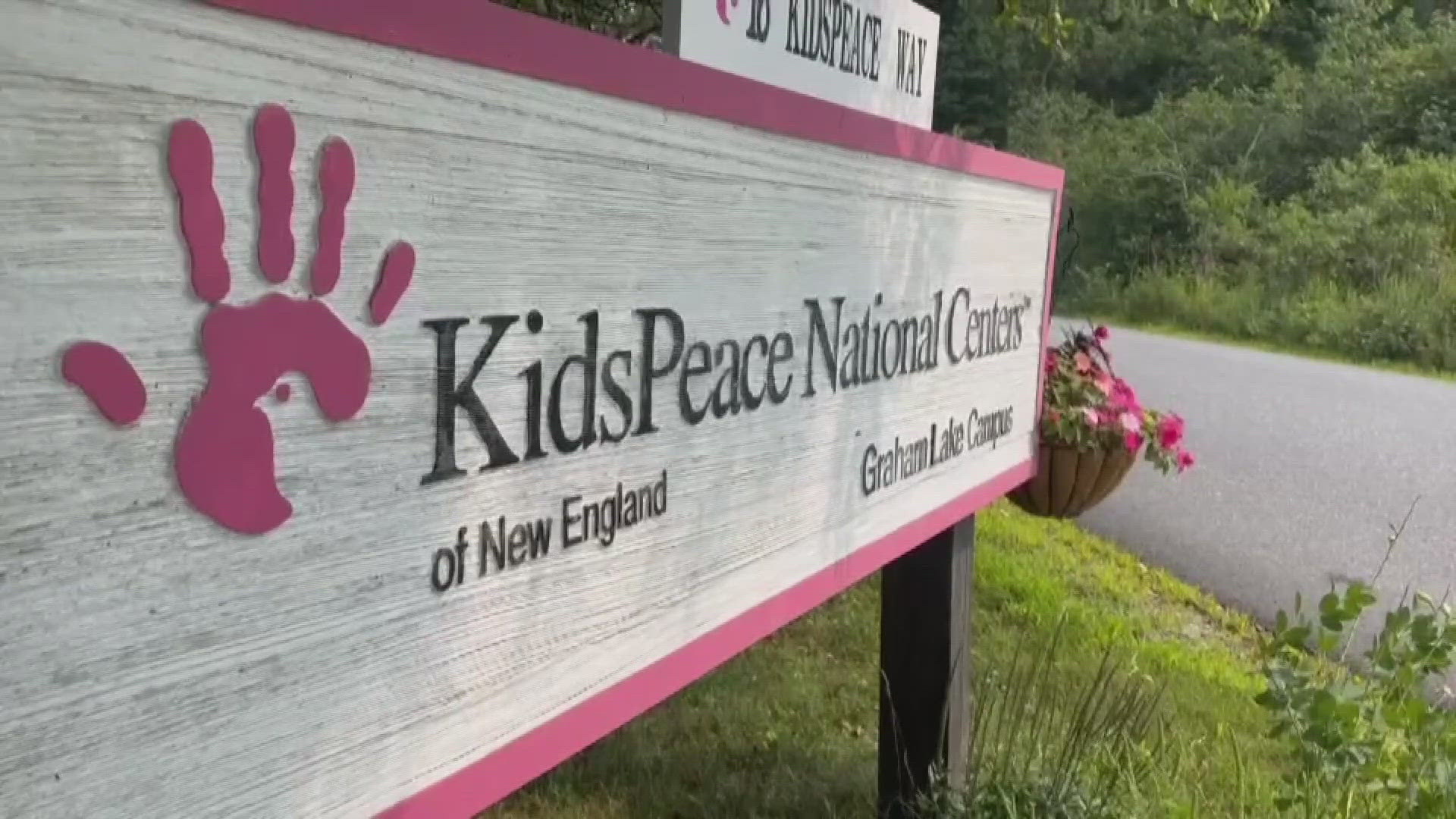ELLSWORTH, Maine — There are now only two residential treatment programs for kids with intellectual and developmental disabilities covered by MaineCare left in the state, leaving few options for many kids who are struggling and their families.
In the past two months, three Spurwink residential treatment programs have closed—two in Chelsea and one in Scarborough. Now, only Spurwink’s Brook House in Westbrook and KidsPeace in Ellsworth remain.
According to behavioral health professions, more than 100 kids in Maine are waiting to be placed in residential treatment programs, but they don’t have anywhere to go.
There are about 224 residential beds in Maine and 121 kids currently placed. But most facilities don’t have the staff or resources to take on any more kids.
“We wish that we could take them all in to provide them the support,” Rachel Bousquet, executive director of KidsPeace in Ellsworth, said.
But staffing shortages and rising costs make it impossible.
Bousquet said there has been an uptick in referrals at KidsPeace in Ellsworth since the recent closures.
“The need is there, the need is present, and the longer that we wait, the more challenging that it becomes,” Bousquet said.
Spurwink President Eric Meyer said the decision to close three of their programs was heartbreaking.
“It was hard for the kids, for the families, for the staff,” Meyer said.
Meyer said they decided to close their doors due to workforce shortages and financial struggles.
“I'm not sure that there really are viable options for many of those kids right now and I do think that it's a huge challenge,” Meyer said.
Kelly Barton, president of Maine Behavioral Healthcare, said “it's a real crisis in the state, and it's impacting our kids and their families.”
Barton said there are more and more gaps in services for kids with developmental disabilities, especially as their needs become more acute, leading many to out-of-state care or being treated in hospital emergency rooms or inpatient programs.
“The reason that's not good for them is that's the most restrictive level of care. And so, they don't necessarily have the freedom of movement they would have in a residential facility,” Barton said.
Behavioral health professionals are working to prevent future closures from happening, making strides to bolster the workforce and work with the state to get more funding for these essential programs.
“I am hopeful,” Bousquet said.
She said KidsPeace is working to bring more professionals to the nonprofit to keep getting kids the services they need.
One thing the organization has done is secure a grant to help its staff access higher education. KidsPeace partners with the University of Maine at Augusta to offer free associate degrees in health and human services, so their staff can provide more services.
“People here in Maine are very well-known in the sense of always coming together, supporting their communities, and this is a challenge I think we can overcome,” Bousquet said.
According to Barton, health care reimbursement rates have not kept up with the cost of delivering care, which is another reason many residential treatment facilities are struggling.
She said addressing that gap in reimbursement is a long-term solution to getting kids the care they need.

